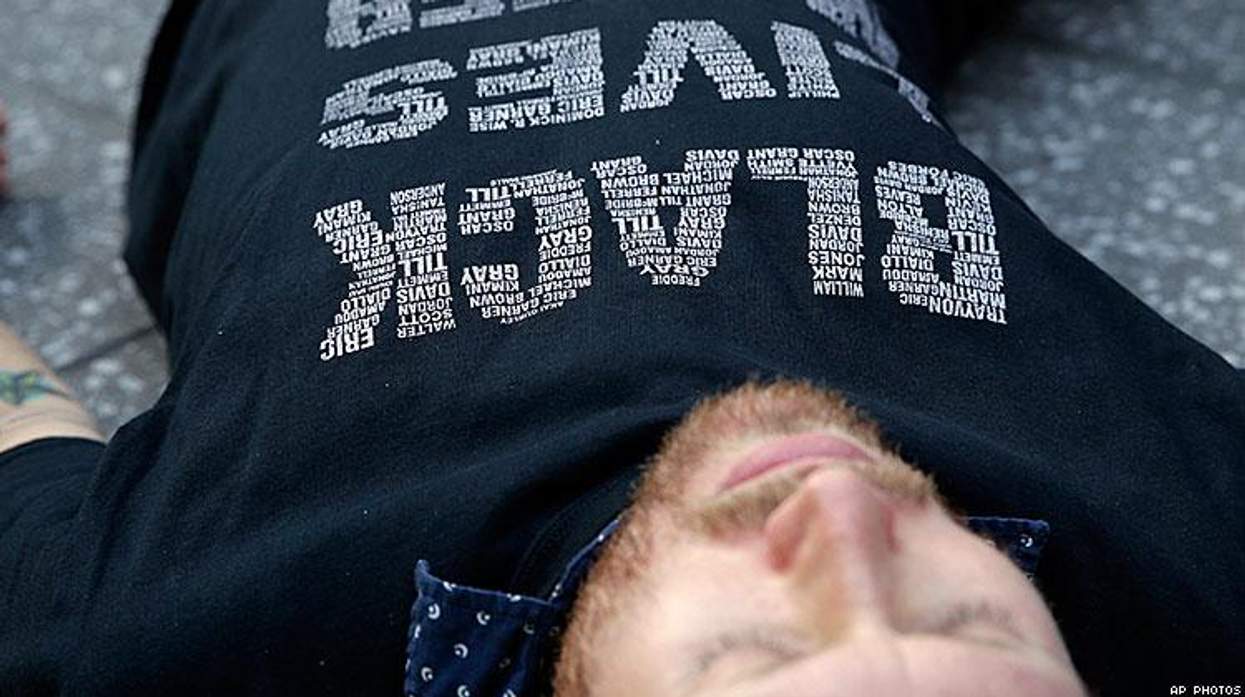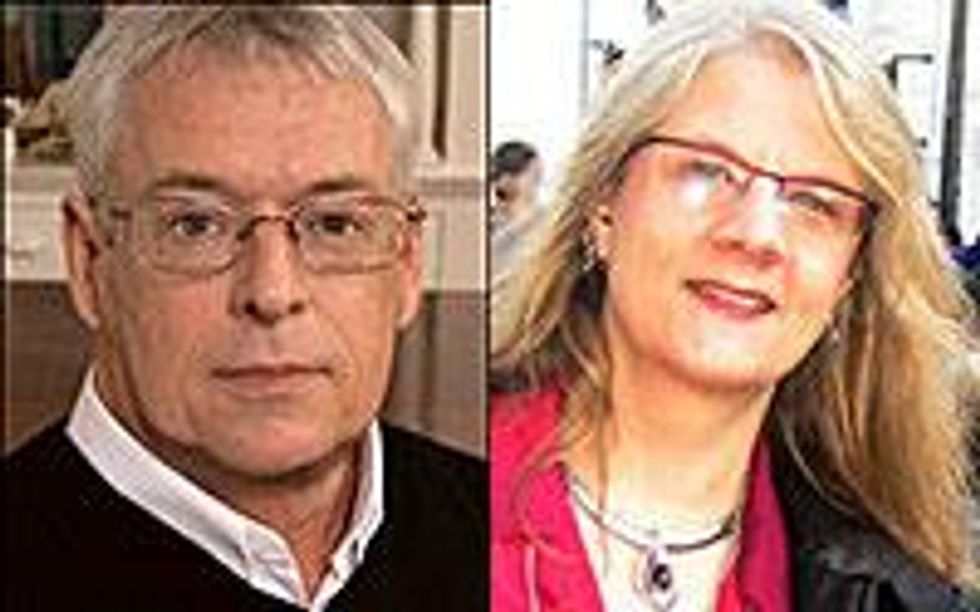The Advocate asked us to write about the contributions white LGBT people can make to support African-Americans in our mutual struggle against HIV and AIDS, which remains a critical issue for black people and LGBT people of all colors throughout the United States and worldwide.
Although HIV has become an increasingly manageable disease for people with access to effective treatment, it continues to ravage black communities. African-Americans are more likely to be newly infected with HIV, are diagnosed later, and often receive a lower quality of care. While many LGBT activists and organizations have turned their attention to same-sex marriage and other issues, we cannot let HIV and AIDS fall off our radar.
According to the Centers for Disease Control and Prevention, African-Americans are eight times more likely than whites to become infected with HIV. More than 40 percent of all new infections in the U.S. -- and 29 percent among women -- occur among black people, who account for 12 percent of the total population. Young black gay and bisexual men have the highest rate of infection, and transgender people of color are also heavily affected. If these trends continue, it is estimated that black gay and bi men have a 60 percent chance of becoming HIV-positive by the time they reach age 40.
African-Americans, on average, are diagnosed with HIV when they have more advanced disease and are less likely to get appropriate care, start antiretroviral treatment, and reach an undetectable viral load. As a result, blacks have disproportionately high rates of progression to AIDS and HIV-related death.
How is it possible that in 2015 people are still coming to the hospital only after they develop symptoms of AIDS? One answer is lack of access to care. The AIDS Drug Assistance Program, which has been a lifeline for uninsured and underinsured people with HIV who cannot afford the medications they need -- has been the least well-funded in states, especially in the Southeast, that have a large proportion of black and poor residents. While the Affordable Care Act has improved health care coverage for millions of Americans, many of these same states have refused to expand their Medicaid programs to cover vulnerable populations.
The biggest HIV breakthrough in recent years has been the advent of pre-exposure prophylaxis, or PrEP -- the daily dose of a medication that can dramatically reduce the risk of HIV infection. But here too, black gay and bi men and transgender people are not beneftting as much as others from this advance.
We have lived through the most devastating years of the AIDS pandemic, lost many friends and colleagues, and witnessed the destructive power of social stigma. But in those days, the stigma and shaming came mostly from the outside world -- from people who already hated us for being queer or black or poor.
Today, much of the shaming comes from our own LGBT community -- from people we hope would have more empathy and a sense of solidarity. It comes from those who regard newly infected people with smug contempt, who wag their fingers and say "You knew the risk!" or "You must be on meth!" or "You should have used a condom!" We need to stop shaming people -- we need to stop talking at them and start listening to them.
HIV in African-American communities is a big, complicated, and painful issue, but there are many ways white LGBT people can act in solidarity as allies. We can start by speaking out and by showing up at rallies, fundraisers, protests, and vigils. We can join the Black Lives Matter fight against police abuse, mass incarceration, and the criminalization of HIV.
We can demand that school districts educate their students about sexual health and end "abstinence-only" policies that deny young people the information they need to protect themselves and their partners. We can fight for reproductive rights regardless of income and defend Planned Parenthood, which is the primary source of health care for many low-income Americans.
We can advocate for housing policies that protect poor, working-class, and middle-class people from displacement in the face of rising housing costs, which impacts health care for both the LGBT and African-American communities.
We can lobby for increased funding of ADAP, Medicaid, and ultimately universal health care, including strengthening mental health and substance use services. Failure to fund these critical services reflects institutionalized racism and marginalization of poor people. We need to stop blaming disadvantaged people for the shortcomings of the for-profit health care system.
We can insist that black people be fully represented in decision-making on the boards of directors of AIDS service organizations. We can urge national LGBT organizations to work in coalition with African-American leaders to address HIV in the black community, violence against trans women, and other critical issues.
The LGBT community has focused so many resources and made so much progress in efforts to win marriage equality and the right to serve in the military. But some of us have been left behind -- and they see little evidence that "it gets better."
We must do whatever we can, wherever we live, to send a message to the young people at greatest risk. We must tell them that they are beautiful and that we love them and that they deserve to be healthy and happy and safe. We must tell them that yes, their black lives do matter. And then we need to listen.
 CLEVE JONES is the originator of the Names Project AIDS Memorial Quilt and a cofounder of the San Francisco AIDS Foundation.
CLEVE JONES is the originator of the Names Project AIDS Memorial Quilt and a cofounder of the San Francisco AIDS Foundation.
LIZ HIGHLEYMAN is a medical journalist and former ACT UP member who has been covering and fighting HIV for nearly 30 years.
The Advocate's #6in10MenIf nothing changes, 6 in 10 black gay and bisexual men in the United States will have HIV by the time they are 40 years old. Learn more about this crisis in The Advocate's series #6in10Men: https://www.advocate.com/6in10men
Posted by The Advocate magazine on Friday, September 25, 2015


 CLEVE JONES is the originator of the Names Project AIDS Memorial Quilt and a cofounder of the San Francisco AIDS Foundation.
CLEVE JONES is the originator of the Names Project AIDS Memorial Quilt and a cofounder of the San Francisco AIDS Foundation.

































































Charlie Kirk DID say stoning gay people was the 'perfect law' — and these other heinous quotes